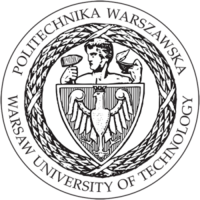
WARSAW UNIVERSITY OF TECHNOLOGY | POLAND
- plac Politechniki 1, 00-661 Warszawa, Poland
- Visit University Websites
- University Type: Public
- Famous For : Research oriented teaching




The Warsaw University of Technology is one of Poland’s most important innovation institutions and one of the largest in Central Europe. It employs 2,453 performers, including 357 instructors. Nineteen faculties span almost every subject of research and innovation. Except for one in Pock, they are all in Warsaw.
Every year, over 5,000 people graduate from the Warsaw University of Technology. Alums of Warsaw Tech make up the highest echelon of Polish administrators and authorities. Each of Poland’s top 500 partnerships has a president who attended the Warsaw University of Technology. The minister, Educator Kurnik, clarified that the school provides a solid foundation for the display of leaders by providing its understudies with the most significant Degree of instruction and planning with the equipment and data, including learning of unknown dialects. Shopnotour for Students arrange student visas to Poland from Bangladesh. We advise students on how to apply for admission to Poland, get a visa for Poland, Poland embassy appointments, the Poland embassy in Bangladesh, the Poland study visa procedure, the Poland study visa checklist, and so on.
Tomasz Bagiski, artist, animator, and director. Ryszard Bartel, engineer. Mieczysaw G. Bekker, engineer, and scientist
It is the top technological University in Poland.
The Careers Office at Warsaw University of Technology offers students with career guidance, education, and information.
In the center of Europe, you can study and live.
Multidisciplinary education facilitates the acquisition of broad knowledge.
Faculty as a whole:
Architecture, Automotive and Construction Machinery Engineering, Chemical and Process Engineering, Chemistry, Civil Engineering, Electrical Engineering, Electronics and Information Technology, Building Services, Hydro and Environmental Engineering, Geodesy and Cartography, Mathematics and Information Science, Management, Materials Science and Engineering, Mechatronics, Mechatronics, Mechatronics, Mechatronics, Mechatronics, Mechatronics, Mechatronics,
Transport, Commerce, Physics, Power, and Aeronautical Engineering
Undergraduate: 3,000-5,000 Euros
Postgraduate: 2,850 – 5,500 Euro
Valid travel documentation (Passport)
Curriculum Vitae (CV) (Detail Address, Phone Number, Email & Skype ID)
Two reliable references with email and phone numbers
SSC and HSC results with 80% mark Degree results with 80% marks English Proficiency Certificate (IELTS 7.0 or above or TOEFL 565 or above)
Work Experience Statement of Purpose/Motivational Letter (If required)
The cost of admission is 20,000/=.
Contact Us
Shopno Tour
01958553912-4
Studying abroad offers several benefits, including exposure to new cultures and ways of thinking, the opportunity to learn a new language, the chance to gain international experience and make global connections, and the potential to boost your career prospects.
The admission requirements for studying abroad vary depending on the country and the institution you are applying to. Generally, you will need to provide academic transcripts, proof of English language proficiency (such as TOEFL or IELTS scores), letters of recommendation, and a personal statement or essay.
When choosing a study abroad program, consider factors such as the location, academic reputation of the institution, program offerings, cost, and support services available to international students.
The process for applying for a student visa varies depending on the country you are applying to. Generally, you will need to provide proof of admission to a recognized educational institution, evidence of financial support, and a valid passport. You may also need to attend an interview at the consulate or embassy.
Studying abroad can be expensive, but there are several options for financing your education, including scholarships, grants, student loans, and part-time work. It is important to research and apply for funding opportunities early in the application process.
To prepare for studying abroad, make sure you have all the necessary documentation, including a valid passport and student visa. Research the culture and customs of the country you will be visiting, and consider learning some of the local language. Connect with other students who will be studying abroad to build a support network, and make sure you have sufficient funds to cover your living expenses.
The process for finding housing while studying abroad varies depending on the country and the institution you are attending. Many institutions offer on-campus housing options, while others may provide assistance in finding off-campus accommodations. It is important to research your options and make arrangements well in advance of your departure.
Many institutions provide support services to international students, such as language classes, cultural activities, academic advising, and counseling services. It is important to take advantage of these resources to help you adjust to your new environment and succeed academically.
